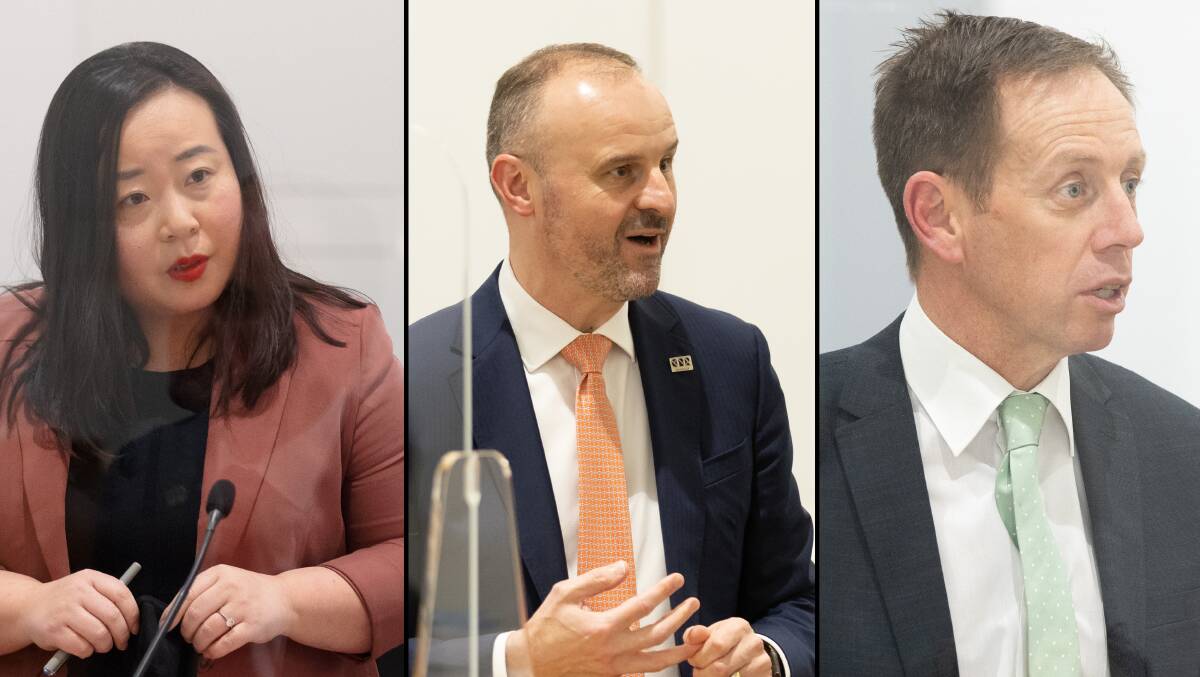
The second year of a parliamentary term is often when the hard work is done. It's that sweet spot for politicians where new members have settled into their roles and an election is far enough away that it doesn't have to be front and centre of every decision.
But time moves quickly, and while it may feel as if the 2020 ACT election happened only recently, in just eight months' time the ACT government will be halfway through the 10th Assembly.
As that halfway point approaches, the government is looking to lock in its legacy for this term.
On the other hand, the opposition is starting to ramp up its efforts to present itself as an alternate government, hoping to reverse its bad luck and not face the prospect of having spent almost 30 years in opposition.
Last year was punctured by the COVID lockdown, after the pandemic finally took hold of the city. Leaders all agree that COVID recovery will dominate the year ahead, but both the government and the opposition will look to push ahead with policies and promises that have been placed on the backburner.
Significant law reforms
The ACT Legislative Assembly is set to debate and consider some quite significant reforms over 2022, including drug decriminalisation, affirmative consent laws, raising the minimum age of criminal responsibility, and reforming sexual assault responses.
Chief Minister Andrew Barr told the Assembly on the first sitting day of the year that the government would be "pursuing an ambitious and progressive legislative program".
"For more than two decades, this jurisdiction has advanced nation-leading reforms that have ensured Canberra remains one of the most liveable, inclusive and progressive cities in the world - and that will continue in 2022," Mr Barr said.
Greens leader and Attorney-General Shane Rattenbury said the pandemic response had slowed legislative work, but the government would work to progress these issues throughout the year.
He said legal reforms would be key agenda items this year.
"The nature of the pandemic is that it's meant that some important other areas of work have been delayed or slowed down or not given the attention they needed, and whilst we continue to manage the pandemic, we have to get on with as much of that as we can," Mr Rattenbury said.
Proposed drug decriminalisation laws put forward by Labor backbencher Michael Pettersson are set to come up at some point in the year. It is likely the contentious bill will pass.
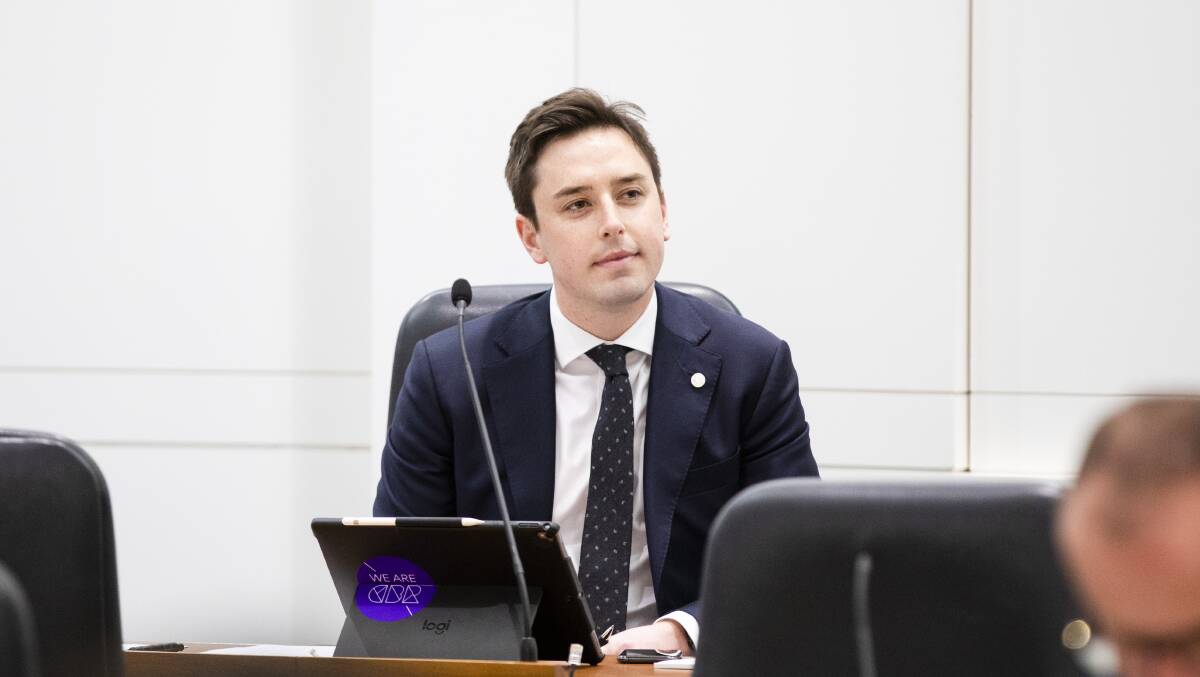
The bill was introduced to the Legislative Assembly in 2021, and went through an extensive consultation and committee inquiry during the year.
The proposed legislation would set a possession limit of two grams for cocaine, ice and heroin, and 0.5 grams for ecstasy.
The select committee that investigated the bill tabled its report in November. Labor and Greens members of the committee agreed that certain amounts of illicit drugs should be decriminalised in the ACT.
However, Liberal committee chair Peter Cain disagreed with his fellow committee members, saying the bill failed to consider the risks of decriminalisation.
Opposition Leader Elizabeth Lee confirmed the Liberals still had no intention of supporting the bill in its current form.
"To have this drafted by a backbench member of the government, it just clearly shows that this is a government that is not serious about drug reform; it is a government wanting the sensational headlines, and that is a disservice to the Canberra public," she said.
"We affirm that the current bill, as it is before the Assembly, the Canberra Liberals will not support it."
The ACT government will also introduce legislation to raise the minimum age of criminal responsibility. This was a commitment in the Labor-Greens power-sharing agreement, but the agreement does not specify an age.
Mr Rattenbury is strongly on the record that the age should be 14, as is Family and Community Services Minister Rachel Stephen-Smith.
Consultation has focused on raising the age to 14, but the ACT's cabinet has yet to confirm its position.
Ms Lee said the opposition was open to raising the age, but needed a guarantee that appropriate diversionary programs would be in place to ensure young people could get the appropriate support.
"Not a single person wants to see a young person in jail, but [it isn't necessarily] right to raise the age from 10 to the current proposed 14 without having done the necessary infrastructure work in making sure that there are genuine evidence-based diversionary programs or initiatives that will ensure that any young person who finds themselves in a situation where they may be at risk of being incarcerated," she said.
"We're open to it, but obviously we'll need to see the legislation as it comes before us."
The ACT government will also have to respond to a damning report into the territory's sexual assault responses. The report found that sexual assault victim-survivors were often retraumatised through their experiences with the ACT's justice system.
But the report recommended that change needed to go far beyond the criminal justice system, and system-wide reform was needed to ensure victim-survivors were supported at every stage.
An affirmative consent bill put forward by Labor backbencher Marisa Paterson will be considered by the Legislative Assembly in 2022. Dr Paterson is hopeful the bill can pass before the end of the year.
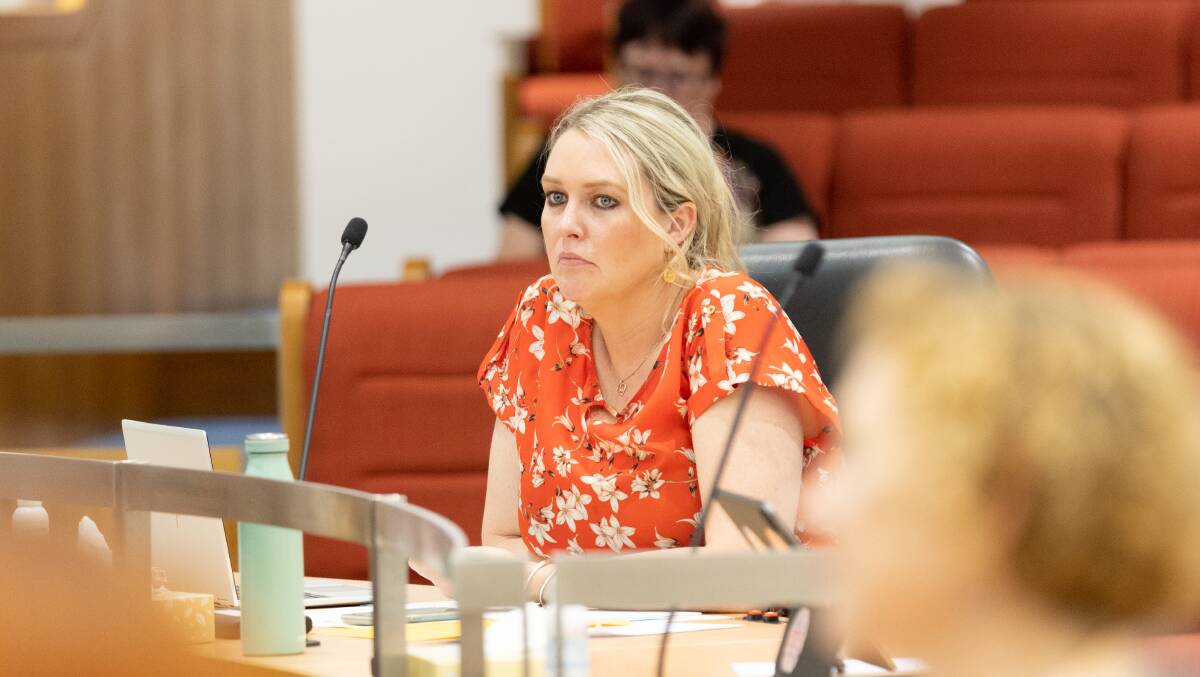
The government will also introduce reforms to the Discrimination Act to better protect transgender, gender-diverse and intersex Canberrans against discrimination.
"We will look to reform the births, deaths and marriages registration legislation to ensure a better and more inclusive process for changing birth registration and birth certificates for trans and gender-diverse people," Mr Barr said.
"We will consult with the community and introduce legislation to support people with variations in sex characteristics and their families, deferring some medical interventions until a person can give personal consent."
Housing affordability
House prices surged in Canberra over 2021, and finished the year with a median value above $1 million.
Housing affordability has been a key issue in the territory over recent years, and the opposition made it a key issue in the 2020 election.
At the 2024 election, unless something drastic changes, housing affordability is set to dominate discussion yet again.
The Liberals have already attacked the government on housing affordability this year. On the first sitting day of the year, opposition housing spokesman Mark Parton moved a motion calling on the government to review the implementation of its housing strategy. And Ms Lee has said the opposition will continue to heap pressure on the government over the issue.
The Canberra Liberals have long argued that the ACT government has control over land supply in the territory, and this is one of the main levers when it comes to influencing land and house prices.
"There are many complex factors that goes into house prices, but we also know that there are factors that are solely within the discretion of this ACT Labor-Greens government, and they have absolutely failed when it comes to addressing housing affordability," Ms Lee said.
"There's no doubt that when you see the prices that are out there at the moment, the eye-watering prices that are out there at the moment, it impacts everybody, not only those who are wanting to break into the housing market and buy, but it has a direct impact on rents."
In his opening speech to the Assembly, Mr Barr also acknowledged the issue of housing affordability - but unlike the opposition, the Chief Minister pointed to federal government tax concessions as having the main stranglehold on ACT housing prices.
He said all governments should be working together to ensure house price growth does not outpace wages.
"Property is an investment class of asset, impairing the significant role housing plays in providing a safe environment as we become increasingly divided as a society [into] those with and without property," Mr Barr said.
"I have put on the public record that I believe the medium-term objective of all jurisdictions in this country should be the design of policies that result in property price growth no greater than wage price growth.
"This requires active participation of governments at all levels. While Commonwealth tax concessions remain structured the way they are, we continue to fight an uphill battle."
MORE A.C.T. POLITICS NEWS:
- Steel marks start to Monaro Highway upgrade for more rural road funding
- Electric vehicles could double or triple each year on ACT roads: Barr
- ACT community sector forced to 'cut corners' over funding pressures
What will no doubt be of interest to developers, community councils, home owners and renters is the introduction of a new planning act.
The legislation is set to come before the Assembly later in 2022, with an exposure draft expected to be released in the coming months.
Labor-Greens alliance
In the public eye, Labor and the Greens present a united front. Behind the scenes there are some murmurings of discontent, but so far the two parties have largely gotten along this term.
But Mr Rattenbury said his party would look to pursue its own policies, including those that did not make it into the Labor-Greens parliamentary and governing agreement.
"It's not about ruffling feathers... the reality is both parties went to the election with different platforms, and whilst we govern together, we still have those agendas as well," Mr Rattenbury said.
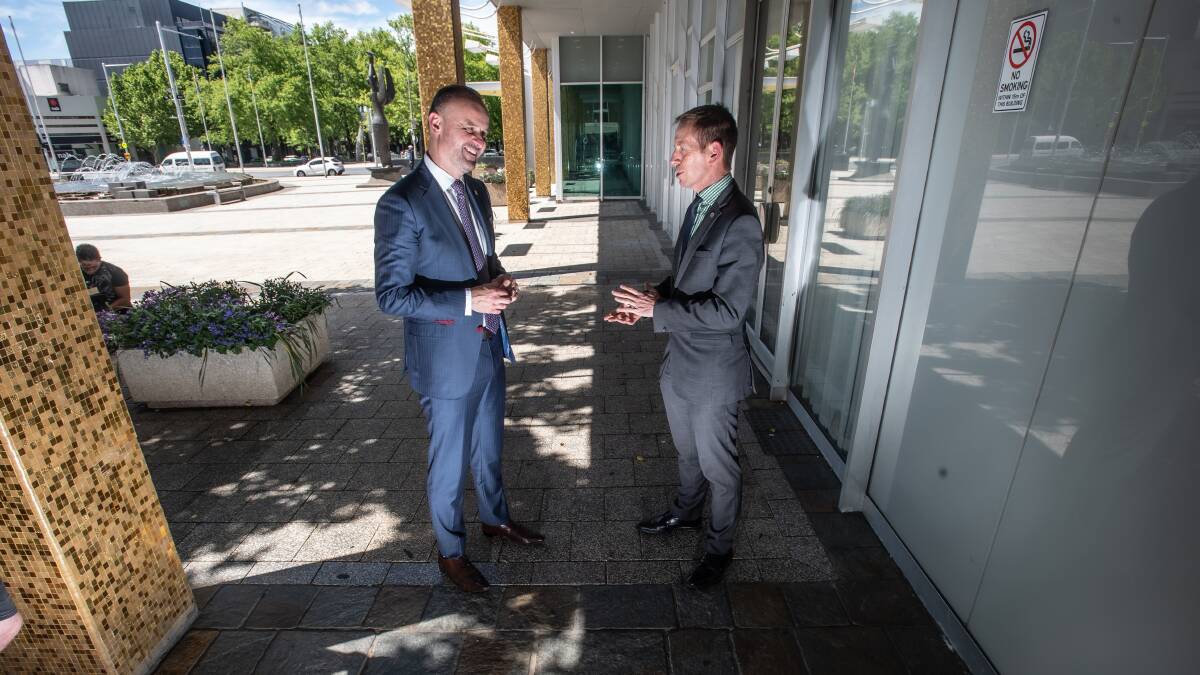
Mr Rattenbury said he felt the Greens crossbenchers were starting to find their feet, and they would be bringing forward a range of policies over the coming years.
"The very nature of the first year after the election is working out how this place works ... and last year was a very strange year for them anyway, it was not a normal year," he said.
"They've got a lot on their plate this year, they really want to carry through some of the items in the parliamentary agreement, and there are items in the parliamentary agreement that didn't make it in, so we'll see some of those being worked on as well."
The Liberals
The opposition underwent a change in its leadership ranks, with Giulia Jones resigning from the deputy leader role last month.
Mrs Jones cited the ongoing personal toll of the COVID-19 pandemic and a desire to spend more time with her large family as the reasons for her resignation.
But there had been tension between Ms Lee and Mrs Jones in recent months.
It was quietly announced last week that Mrs Jones will be on leave until April 1.
Former opposition leader Jeremy Hanson was elected unopposed to the deputy leadership by the Canberra Liberals party room.
It marked a shift in power to the moderate element of the party, as both Ms Lee and Mr Hanson are seen to hold more moderate views within the Canberra Liberals party room.
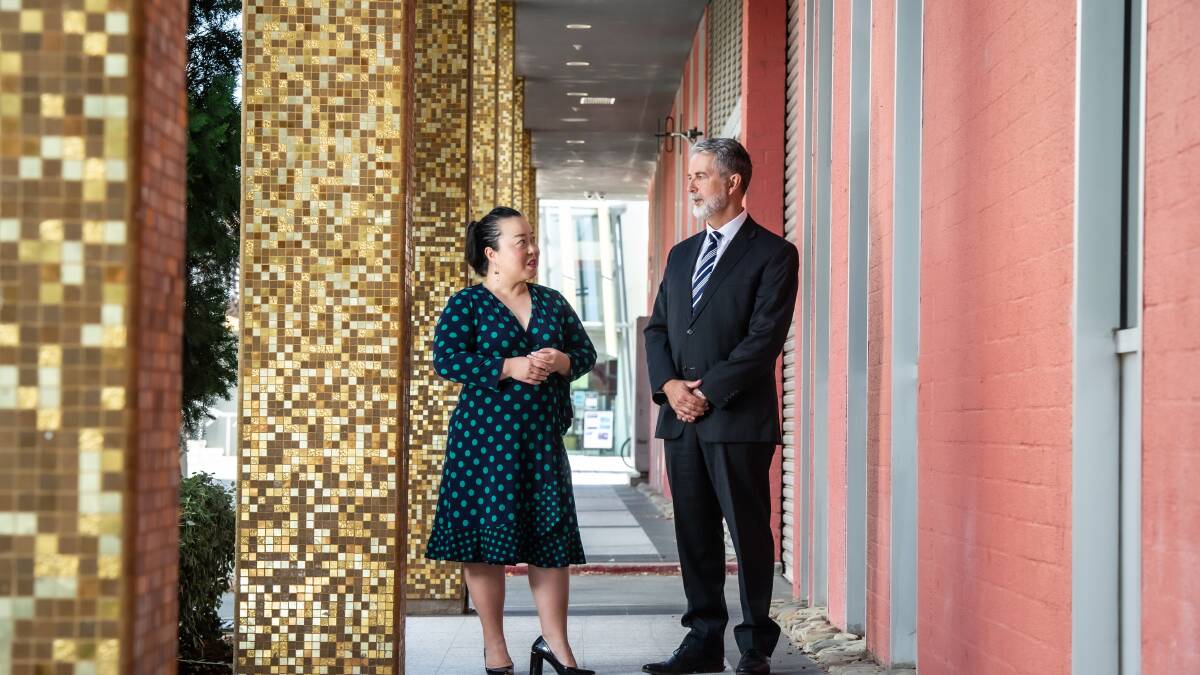
But while there was much conjecture about a conservative-versus-moderate tiff, Ms Lee sought to downplay the claims.
"There's always a lot of talk about this 'moderate versus conservative' and what have you, but let's get real - this is a party room of like nine members ... and of course there are people who have different life experiences and different world views, and in the Liberal Party that is always encouraged," Ms Lee said.
"If there are formalised factions in the ACT, no one's invited me to be a part of it."
The 2024 election is firmly on the agenda for the Liberals. Ms Lee said the party worked through 2021 to build a good foundation, and its main aim over the next two and a half years would be to present itself as an alternate government.
"The first year after an election loss is always a difficult one of self-reflection, making sure that you are building some good foundations for the term so that we can put ourselves forward as a genuine alternate government in 2024," she said.







